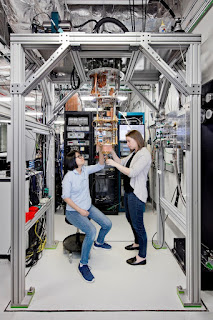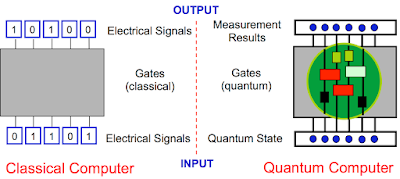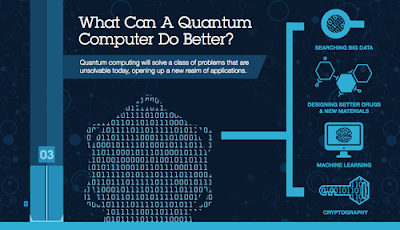Twitter Feed
Firebrand Announces 2017 Accelerated CloudMASTER® Dates
Firebrand, the leader in Accelerated Learning, has recently announced it’s 2017 delivery schedule for their accelerated CloudMASTER® training course. Delivered in partnership with Logical Operations and the NCTA, this unique…
TAP Accelerates Artificial Intelligence
Photo credit: Shutterstock Over the past few years, the use of artificial intelligence has expanded more rapidly than many of us could have imagined. While this may invoke fear and…
Cognitive on Cloud
Photo credit: Shutterstock According to the IBM Institute for Business Value the market will see a rapid adoption of initial cognitive systems. The most likely candidates have moved beyond descriptive…
Europe: NCTA CloudMASTER® Hotspot
The ongoing digital transformation continues to generate a steady demand for workers with increasingly sophisticated digital skills. This process is multi-dimensional and workers with these highly specialized skills are very…
Smart Manufacturing Is Cloud Computing
As cloud computing simultaneously transforms multiple industries many have wondered about how this trend will affect manufacturing. Often characterized as “staid”, this vertical is not often cited when leading edge…
George Youmans, Jr.: The CloudMASTER Fashionista!
So how could a NCTA Certified CloudMASTER accelerate his career in the fashion industry? To answer that question, you would need to catch up with George Youmans, Jr. He has…
Is Cloud Interoperability a Myth?
Photo credit: Shutterstock As the industry matures, cloud computing will increasingly rely on interoperability in order to grow and deliver more value to industry. Assuming this is a fact, what…
Should Data Centers Think?
As cloud computing becomes the information technology mainstream, data center technology is accelerating at a breakneck speed. Concepts like software define infrastructure, data center analytics and Nonvolatile Memory Express (NVMe)…
For Top Cyber Threats, Look in the Mirror
A recent report by Praetorian, a cybersecurity company headquartered in Austin, TX, focused on threats that resulted in data compromise or access to sensitive information. Based on a review of…
Your Choice: Cloud Technician or Digital Transformer
The CompTIA Cloud+certification validates the skills and expertise of IT practitioners in implementing and maintaining cloud technologies. This is exactly what it takes to become a good cloud technician. In…
- The release of a new API (Application Program Interface) for the IBM Quantum Experience that enables developers and programmers to begin building interfaces between its existing five quantum bit (qubit) cloud-based quantum computer and classical computers, without needing a deep background in quantum physics.
- The release of an upgraded simulator on the IBM Quantum Experience that can model circuits with up to 20 qubits. In the first half of 2017, IBM plans to release a full SDK (Software Development Kit) on the IBM Quantum Experience for users to build simple quantum applications and software programs.
The IBM Quantum Experience enables anyone to connect to IBM’s quantum processor via the IBM Cloud, to run algorithms and experiments, work with the individual quantum bits, and explore tutorials and simulations around what might be possible with quantum computing. Since its launch less than a year ago, about 40,000 users have run over 275,000 experiments on the IBM Quantum Experience. It has become an enablement tool for scientists in over 100 countries and, to date, 15 third-party research papers have been posted to arXiv with five published in leading journals based on experiments run on the Quantum Experience.
 The broad availability of quantum computing capability could prove to be a significant blow to current data encryption practices. In 2015 the US National Security Agency actually advised US agencies and businesses to prepare for a time when the cryptography protecting virtually all e-mail, medical and financial records, and online transactions would be rendered obsolete by quantum computing. The US National Institute for Standards and Technology (NIST) is also running a competition to spur work on post-quantum algorithms.
The broad availability of quantum computing capability could prove to be a significant blow to current data encryption practices. In 2015 the US National Security Agency actually advised US agencies and businesses to prepare for a time when the cryptography protecting virtually all e-mail, medical and financial records, and online transactions would be rendered obsolete by quantum computing. The US National Institute for Standards and Technology (NIST) is also running a competition to spur work on post-quantum algorithms. - Drug and Materials Discovery: Untangling the complexity of molecular and chemical interactions leading to the discovery of new medicines and materials;
- Supply Chain & Logistics: Finding the optimal path across global systems of systems for ultra-efficient logistics and supply chains, such as optimizing fleet operations for deliveries during the holiday season;
- Financial Services: Finding new ways to model financial data and isolating key global risk factors to make better investments;
- Artificial Intelligence: Making facets of artificial intelligence such as machine learning much more powerful when data sets can be too big such as searching images or video; or
- Cloud Security: Making cloud computing more secure by using the laws of quantum physics to enhance private data safety.
This content is being syndicated through multiple channels. The opinions expressed are solely those of the author and do not represent the views of GovCloud Network, GovCloud Network Partners or any other corporation or organization.
( Thank you. If you enjoyed this article, get free updates by email or RSS – © Copyright Kevin L. Jackson 2017)
Cloud Computing
- CPUcoin Expands CPU/GPU Power Sharing with Cudo Ventures Enterprise Network Partnership
- CPUcoin Expands CPU/GPU Power Sharing with Cudo Ventures Enterprise Network Partnership
- Route1 Announces Q2 2019 Financial Results
- CPUcoin Expands CPU/GPU Power Sharing with Cudo Ventures Enterprise Network Partnership
- ChannelAdvisor to Present at the D.A. Davidson 18th Annual Technology Conference
Cybersecurity
- Route1 Announces Q2 2019 Financial Results
- FIRST US BANCSHARES, INC. DECLARES CASH DIVIDEND
- Business Continuity Management Planning Solution Market is Expected to Grow ~ US$ 1.6 Bn by the end of 2029 - PMR
- Atos delivers Quantum-Learning-as-a-Service to Xofia to enable artificial intelligence solutions
- New Ares IoT Botnet discovered on Android OS based Set-Top Boxes




